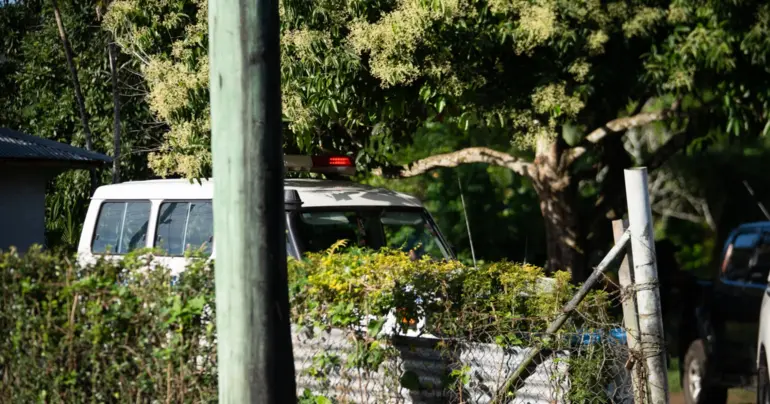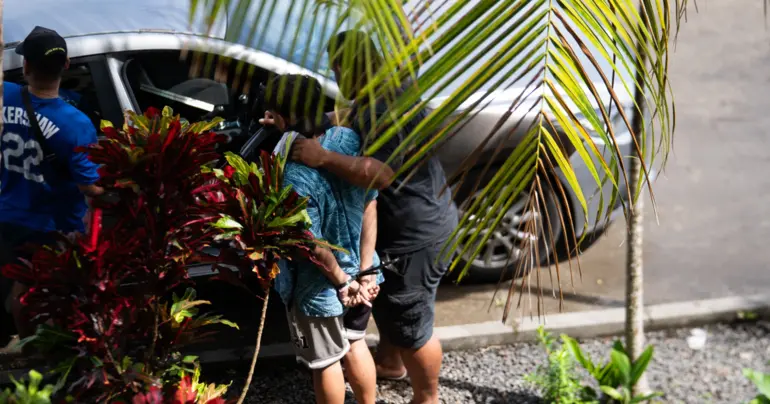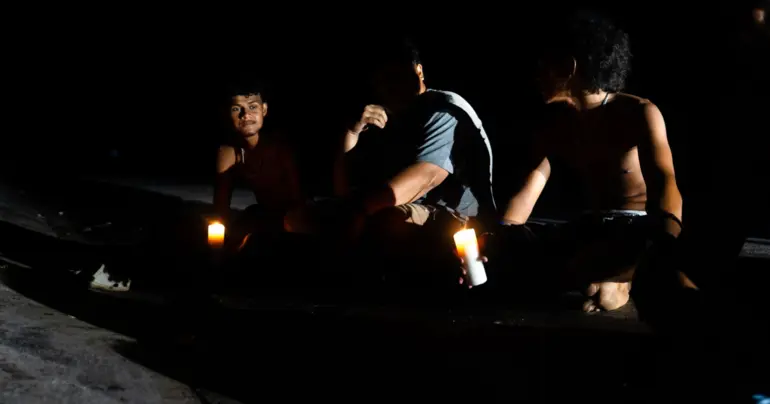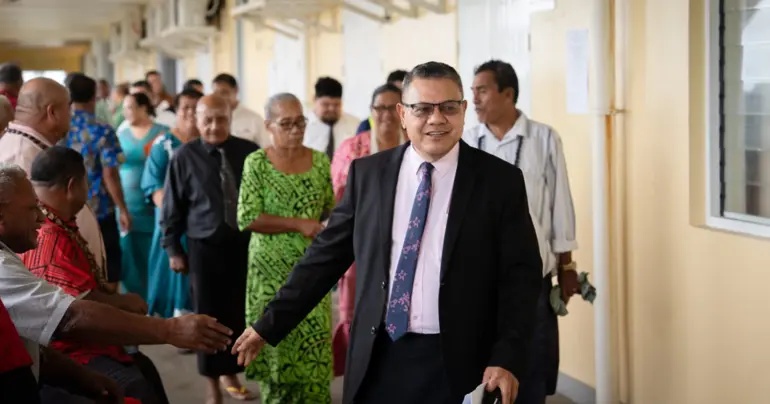Tuilaepa in opposition: the right man for the job?
 By The Editorial Board
•
27 July 2021, 12:00AM
By The Editorial Board
•
27 July 2021, 12:00AM
What does the future hold for Tuilaepa Dr. Sailele Malielegaoi and the Human Rights Protection Party (H.R.R.P.) now that they find themselves in the unfamiliar position of being seated on Parliament’s opposition benches.
Tuilaepa has signalled he has every intent to take the sword to the party that ousted him at the 9 April election and serve as opposition leader.
To do so after being a national Prime Minister for so long is a rare thing indeed. There are only a handful of Prime Ministers in modern democratic history - who can lay claim to such a long career as Tuilaepa's and none have responded to the end of their reigns by preparing to re-enter the arena, spoiling for a new political fight.
The voting public, who typically resent being forced back to the polls, are forgiving when M.P.s with a record of service as long and distinguished as Tuilaepa’s, choose to retire after an election defeat, as they normally do.
Retirement is the default choice internationally for long-serving democratic Prime Ministers after they have tasted defeat.
Even the few exceptions to this role, those who stay on after defeat, do not assume a position of prominence and accept their time has passed.
A string of British Prime Ministers in the modern era, ranging back from Margaret Thatcher to more recent examples such as Gordon Brown and Theresa May have continued to sit in Parliament for years after being deposed as leaders.
But they stayed firmly on the backbenches and did anything but assume central roles in new Governments.
In Australia, too, former Prime Minister Tony Abbott, his career ended by his own party, continues to serve his constituents and lend his voice to public debate but also from Parliament’s back benches.
The reason that almost no Prime Ministers assume positions of prominence after losing an election is because post mortems of how they lost an election or an internal party power struggle highlight their political flaws. Being deposed is a chance for a party to reinvent its image with a new face.
That Tuilaepa feels no obligation to stand aside as opposition leader makes some obvious points about him and the Human Rights. Protection Party (H.R.P.P.).
The first is that the 9 April loss has not weakened Tuilaepa standing within the party - at least not up to the point at which rivals feel comfortable squaring up against him.
The second is that the party obviously still believes the narrative that it won more votes than and would have been handsomely re-elected had it been more firm about limiting the number of candidates who could win in one seat.
The argument may seem quite compelling but elections in Samoa are not won on a majority-rules basis and the Faatuatua i le Atua Samoa ua Tasi (F.A.S.T.) party did not field candidates in seven of the 51 seats for which candidates were running for office. That factor obviously skews statistics about popular votes unfairly in the H.R.P.P. 's favour.
But despite the highly unusual nature of Tuilaepa’s political move we think in the Opposition Leader’s position he may have found a role which he is inherently suited to fulfill, perhaps even more so than Prime Minister.
His reflex to criticism leaves him perfectly poised to prosecute the job of being an opposition leader who successfully points out others’ mistakes.
The Leader of the Opposition is an important job in any functional democracy.
They are the first line of defence for keeping the Government to account on the floor of Parliament.
It may well also be the toughest job In Parliament to perform well. The Prime Ministership carries with great responsibility and difficult choices . But the Leader of the Opposition's role is undefined. It is easy to tell when a Prime Minister is doing well there are objective measures of how well she (or he) is performing.
The Opposition Leader does not have such defined measures of his success. Nor does he have the authority to roll out policy solutions to social and economic problems. His main political aim is to succeed through his words, not his deeds. His ultimate measure of success will be his ability to cut through national political debate defined by the Government.
We need only look to Tuilaepa’s quasi-concession speech on Monday to see his genius and enthusiasm for casting others in a negative light.
In a wide-ranging speech, the former Prime Minister laid the blame for the party’s election loss at the feet of many of his favourite targets and everyone but members of the H.R.P.P. themselves.
He rejected the constitutional basis for the Court of Appeal's decision declaring the 24 May impromptu swearing-in of the F.A.S.T. party as having legal effect.
He claimed that a “greed” for authority had destroyed the constitution written by Samoa’s forefathers.
“Good governance runs smoothly when we follow provisions of the Constitution of Samoa and related legislation,” he said.
He also lashed out at an unnamed newspaper which he said frequently perpetrates damage against the H.R.P.P. by “twisting” the words of its leaders.
At 76 years of age he presented the tireless front of a man with plenty of political fight left within him.
“The H.R.P.P. will observe and will do the good work to lend our support and work to the best of our ability to oppose you by 500 per cent all the time,” he said.
In some ways it is a tragedy that Tuilaepa, who will be in his eighties by the time the next election comes around did not get to experience political life on the other side of the Parliament’s despatch box earlier in his career.
Because as talented as he may be as a political foe, Tuilaepa can only take up centre stage for so long without doing damage to the future prospects of his party at the next national election.
This year he has often privately lamented that he is the only person within the H.R.P.P. with the capacity to lead the party. That is doubtlessly a debatable point. But whether or not the party has a future in the XVII Parliament and beyond will require him to cede both his talents and centre stage to new faces. For Tuilaepa, this may well prove to be the most challenging aspect of his new job.
 By The Editorial Board
•
27 July 2021, 12:00AM
By The Editorial Board
•
27 July 2021, 12:00AM










